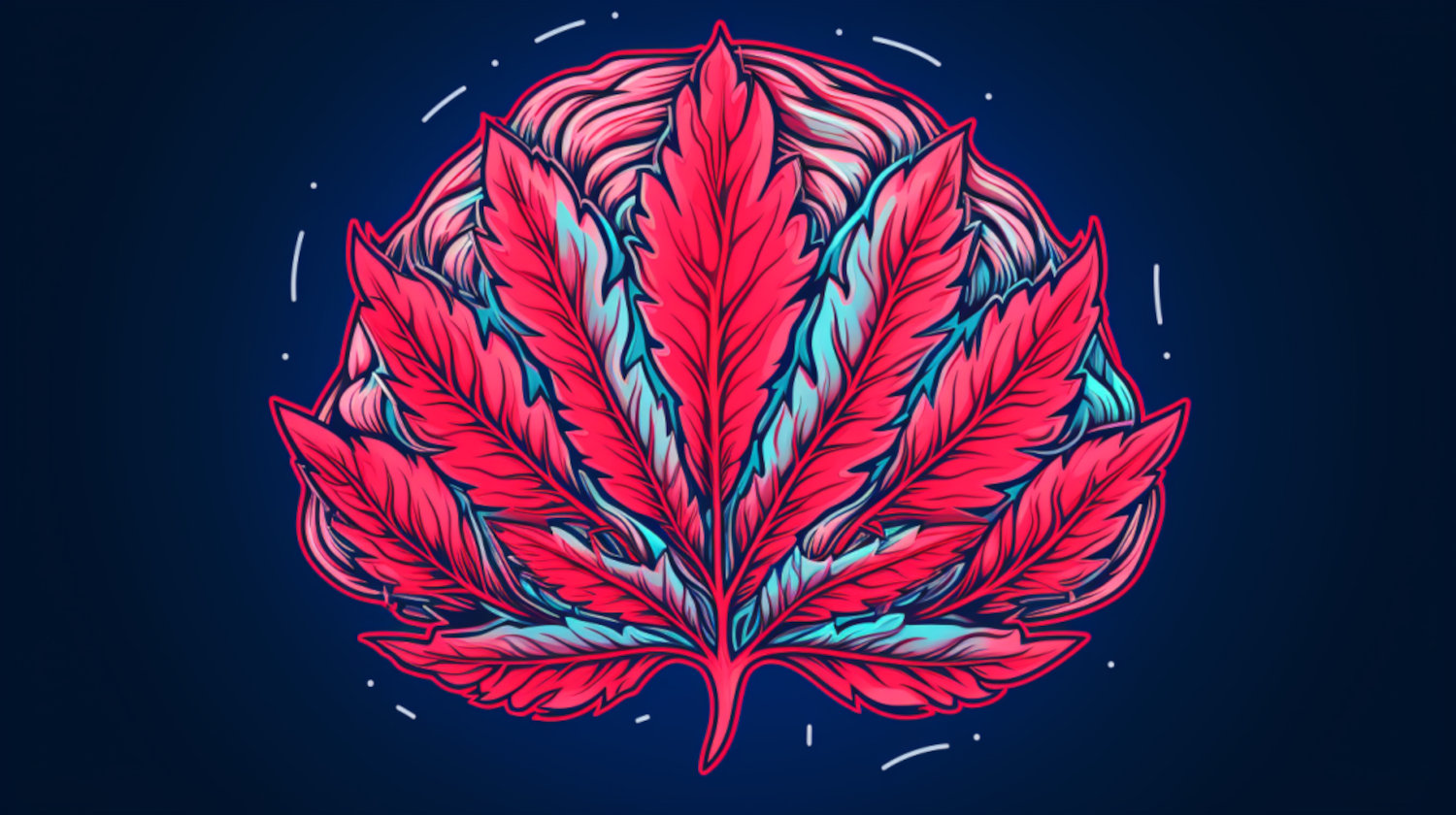In This Article
- The Endocannabinoid System and Brain Cells
- Does Marijuana Kill Brain Cells: What the Research Says
- Positive and Negatives: Long-Term Effects of Weed
- Does Weed Kill Brain Cells: What Neurologists Say
- Tackling Persistent Myths
- Age-appropriate Use
- The Role of Dosage
- CBD vs. THC
- Patient-Centered Approach
- The Need for More Research
- Tips for Using Cannabis Responsibly
- Start Low and Go Slow
- Choose the Right Strain
- Find the Right Dosage Schedule
- Stay Informed
- Choose Your Best Consumption Methods
- Know Your Psychiatric History
- Don’t Overdo It
- Monitor Your Response
- References
Despite the surge in medical marijuana acceptance and interest, many adults were raised on "Just Say No," a US anti-drug campaign. Some will remember the infamous "This is your brain on drugs" commercial, featuring a hot cast-iron skillet and a sizzling fried egg representing your brain. Perhaps because of these memories, a persistent question remains: Does weed kill brain cells?
The short answer is no; weed doesn't "kill" brain cells. But weed does affect the brain and other body systems. If it doesn't kill brain cells, what does cannabis do to the brain?
The Endocannabinoid System and Brain Cells
The endocannabinoid system (ECS) is a communication and function maintenance network in the body that keeps it in balance. It helps regulate and control critical body systems and executive functions, including cognitive processes.1
The ECS works with the central nervous system (CNS), which consists of the brain and spinal cord. It's primarily made up of neurons, which are nerve cells that transmit information, and glial cells (or glia), which support and protect neurons.
Within this ECS network are two types of cannabinoid receptors, or "docking stations," CB1 and CB2. CB1 receptors are found primarily in the brain and central nervous system, influencing appetite, memory, and pain.2 CB2 receptors are distributed throughout the body, like in the immune system, mediating inflammation and body temperature. Glial cells also reside here, providing support and regulation to the neurons.
Even in people who don't use cannabis, the endocannabinoid system is still at work. The brain and body naturally produce endocannabinoids, 2-AG and anandamide. After consuming cannabis, cannabinoids like THC interact with the ECS. Specifically, they bind to the system's receptors, potentially altering mood, memory, and other cognitive functions. This interaction leads many to question marijuana's long-term effects on brain health and executive function.1
Does Marijuana Kill Brain Cells: What the Research Says

The central nervous system, consisting of the brain and spinal cord, contains two different types of cells: neurons (sensory, motor, and interneurons) and glial cells (astrocytes, oligodendrocytes, and microglial cells). Other than during brain development, when excess cells are being eliminated,3 neurons are the longest-living cells within the body. However, neuron death can occur when there is an injury to the brain, such as a concussion or stroke. Neuron death also occurs in neurodegenerative diseases like Alzheimer's and Parkinson’s. Unlike other cells in the body, like skin cells, neurons typically do not come back.
While overall research is limited, a study from 1998 found that in hippocampal cell lines from rats, THC induced neuron death.4 However, more recent research has indicated that endocannabinoid system activation via astrocytes can help promote neuroprotective properties and prevent healthy cell death.5
Cannabinoids like THC and CBG are being studied to promote the death of cancer cells like glioblastomas in the brain as well as inhibit their growth. In a small clinical trial of nine patients with glioblastomas, cannabinoid formulations containing THC were able to decrease the growth of the tumor. Other studies done on cell lines demonstrate the potential for a combination of cannabinoids, like THC, CBG, CBD, and CBC, over the use of single therapeutic cannabinoids.6
Maybe the question is not, "Does weed kill brain cells?" but rather, "Does weed permanently damage the brain?"
Positive and Negatives: Long-Term Effects of Weed
Cannabis is not a new medicine. But U.S. researchers have had minimal access to anything other than synthetic cannabinoids and low-THC government-sanctioned cannabis. The research has also relied mainly on animal trials and self-reporting by participants. The cognitive effects of cannabis have been widely studied over the last few decades; however, with the limited availability of commercial cannabis products to researchers, the current data still seems to be conflicting.7
Brain development and health is a priority area of concern. The endocannabinoid system, rich in endocannabinoids (or eCBs for short), plays a pivotal role in various brain functions, from mood regulation to memory.
In this period of rapid brain development, the brain is busy forging new pathways, refining its functions, and adapting to a daily world of new experiences. Could introducing unmonitored, recreational cannabis use into this growth phase lead to disruptions in attention, memory, and learning processes? Some research indicates that heavy THC use in adolescents may affect neuroplasticity and cause detrimental cognitive effects later in life.8
More recently, a longitudinal research study done on the long-term use of cannabis found that long-term cannabis users had a decline in IQ and performed worse on memory and learning tests than non-users.9
However, cannabinoids and the endocannabinoid system may also act as a guardian for the brain, helping reduce inflammation and providing neuroprotective effects.10
The CB1 receptors in the ECS are found on many brain cells, including astrocytes. Astrocytes play multiple positive roles, including maintaining the blood-brain barrier, providing nutrients to neurons, and regulating neurotransmitter function.
However, astrocytes can produce inflammatory molecules when they respond to an injury or disease when astrocytes respond to an injury or disease, they can produce inflammatory molecules. The interaction of cannabinoids, primarily through CB1 receptors on astrocytes, can modulate this inflammatory response, reducing inflammation.811
The endocannabinoid system’s neuroprotective properties step in to prevent oxidative stress:7 the imbalance of unstable free radical molecules (bad) vs. antioxidants (good). Left unchecked, this can also lead to disease and cell death. Neuroprotective actions potentially safeguard the brain from specific age-related issues.
Chronic inflammation damages healthy cells, organs, and body systems. This is a contributing factor to so many of our most common ailments and diseases, such as diabetes, heart disease, and arthritis.12
If this is an area of concern, it is best to discuss options with a healthcare provider until ongoing research gives us a clearer picture of these and other long-term effects.
Does Weed Kill Brain Cells: What Neurologists Say
Dr. Peter Grinspoon, a cannabis specialist at Massachusetts General Hospital and instructor at Harvard Medical School, said, "There have been a lot of imaginary fears that have been an offshoot of our 50-year war on drugs. There are important benefits, and there's also things people tout as benefits that haven't been proven yet."13
Tackling Persistent Myths
For many just learning about cannabis, there's a lasting buzz of often repeated claims. Neurologist Dr. David Bearman took on the most common, including what he called "the bogus claim of brain damage." He wrote, "Cannabis does not cause brain damage. It is neuroprotective," pointing to the story's origin as long-debunked research.14
Age-appropriate Use
Age-appropriate use is an area where most doctors agree. A distinction is made between medically supervised pediatric cannabis treatment (which has very positive outcomes) and adolescent illicit cannabis smoking, which deserves more study.15 Researchers seem to support the use of CBD in children and adolescents for conditions such as epilepsy and autism spectrum disorder but indicated that more research is needed for medical cannabis for other pediatric conditions.16
The Role of Dosage
Many doctors emphasize the importance of dosage. Neurologist and cannabis researcher Dr. Ethan Russo has stated in his research with Dr. Caroline MacCallum that cannabis users should begin with a low dose and increase as needed.17 Just as with any medication or substance, the amount and frequency of cannabis use can determine its effects. While the long-term impact of cannabis use is still a subject of debate, if risks are present, using cannabis in moderation is a great way to minimize them.
CBD vs. THC
Neurologists often consider the effects of THC (the intoxicating component of cannabis) and CBD (a non-intoxicating component) independently. As seen in a study of Parkinson's disease, CBD has shown potential neuroprotective effects.18
Patient-Centered Approach
Since there are so many conditions that may benefit from cannabis, the American Academy of Neurology put out a statement in support of continuing cannabis research. They also recognize that the FDA has approved Epidiolex for the use of certain epileptic conditions, but they do not support the use of cannabis for other neurological disorders until more research on the safety and efficacy is done. Doctors often weigh the potential benefits of cannabis for a particular patient against the potential risks, guiding their recommendations accordingly.19
The Need for More Research
A common sentiment among neurologists and all scientists is the need for more comprehensive research.
Cannabis research in the USA is still new. There is only anecdotal evidence and preliminary studies to provide early insights, but large-scale, long-term studies will lead to more reliable conclusions.
While researchers do not always agree (and likely never will) about every medical aspect of cannabis, the consensus leans towards cannabis being safe for consumption when used in appropriate doses by people of appropriate ages, but further research is needed.
"Our understanding of the effects of marijuana on the brain is imperfect, and human research in this area is a work in progress," said Dr. Fernando D. Testai, neurologist and professor at the University of Illinois at Chicago, in a news release. Consumers should speak with their doctor if they have questions or concerns about using cannabis.
Tips for Using Cannabis Responsibly

Cannabis works best when approached mindfully. Whether you are considering or currently using medical marijuana, following these suggestions can help you achieve your best experience. Remember these guidelines to ensure your cannabis use remains beneficial without compromising brain health.
Start Low and Go Slow
Especially for newbies, starting with a low dose and gradually increasing it is best.20 Don't use more until you know how the dose affects you. You need to understand how your body reacts to cannabis to minimize your risk of adverse effects.
Choose the Right Strain
Cannabis strains vary in their THC and CBD content. Opt for strains that align with your therapeutic goals. For instance, cultivars high in CBD might be more suitable for those looking for pain relief without the intoxicating effects.
Find the Right Dosage Schedule
Find your “sweet spot” to relieve your symptoms by adjusting the dosing quantity and time of use. By using the lowest effective dose, you can achieve the desired results, use less product, and avoid building tolerance.
Stay Informed
Through ongoing research, scientific understanding of cannabis and its effects on the brain is continually evolving. Stay updated with the latest findings and consult your healthcare professionals to make informed decisions.
Choose Your Best Consumption Methods
Personalize your cannabis consumption. With the variety of ways available to use cannabis as medicine, you can find the method that works best for your symptoms and fits conveniently into your lifestyle. Alternative methods to smoking marijuana, like transdermal patches, edibles, or tinctures, offer easily measured dosing.21
Know Your Psychiatric History
While limited studies suggest that cannabis might increase the risk of psychosis, most agree that there are often pre-existing genetic factors and other variables. If you have a personal or family history that includes any mental disorders, it is best to discuss this with your doctor.
Don’t Overdo It
Although you cannot overdose on cannabis, using too much cannabis can be unpleasant at any age. “Greening out” can include feelings of nausea or anxiety. Older adults using cannabis should be aware that cannabis may affect them differently.22 Tell your physician if you experience unusual dizziness or lightheadedness, and be alert to your fall risk.
Monitor Your Response
Everyone's body reacts differently to cannabis. Regularly assess how you feel, both mentally and physically, after consumption. If you notice any adverse effects, consult with a healthcare professional.
References
- Mechoulam R, Parker LA. The endocannabinoid system and the brain. Annu Rev Psychol. 2013;64:21-47. doi:10.1146/annurev-psych-113011-143739
↩︎ - Alger BE. Getting high on the endocannabinoid system. Cerebrum : the Dana forum on brain science. 2013;2013:14. https://www.ncbi.nlm.nih.gov/pmc/articles/PMC3997295/
↩︎ - Giordano G, Hong S, Faustman EM, Costa LG. Measurements of cell death in neuronal and glial cells. Methods Mol Biol. 2011;758:171-178. doi:10.1007/978-1-61779-170-3_11
↩︎ - Chan GC, Hinds TR, Impey S, Storm DR. Hippocampal neurotoxicity of Delta9-tetrahydrocannabinol. J Neurosci. 1998;18(14):5322-5332. doi:10.1523/JNEUROSCI.18-14-05322.1998
↩︎ - Kasatkina LA, Rittchen S, Sturm EM. Neuroprotective and Immunomodulatory Action of the Endocannabinoid System under Neuroinflammation. International Journal of Molecular Sciences. 2021; 22(11):5431. https://doi.org/10.3390/ijms22115431
↩︎ - Peeri H, Koltai H. Cannabis Biomolecule Effects on Cancer Cells and Cancer Stem Cells: Cytotoxic, Anti-Proliferative, and Anti-Migratory Activities. Biomolecules. 2022;12(4):491. Published 2022 Mar 24. doi:10.3390/biom12040491
↩︎ - Sagar KA, Gruber SA. Marijuana matters: reviewing the impact of marijuana on cognition, brain structure and function, & exploring policy implications and barriers to research. Int Rev Psychiatry. 2018;30(3):251-267. doi:10.1080/09540261.2018.1460334
↩︎ - Rubino T, Realini N, Braida D, et al. Changes in hippocampal morphology and neuroplasticity induced by adolescent THC treatment are associated with cognitive impairment in adulthood. Hippocampus. 2009;19(8):763-772. doi:https://doi.org/10.1002/hipo.20554
↩︎ - Meier MH, Caspi A, R Knodt A, et al. Long-Term Cannabis Use and Cognitive Reserves and Hippocampal Volume in Midlife. Am J Psychiatry. 2022;179(5):362-374. doi:10.1176/appi.ajp.2021.21060664
↩︎ - Ludmila Kasatkina, Rittchen S, Sturm EM. Neuroprotective and Immunomodulatory Action of the Endocannabinoid System under Neuroinflammation. International Journal of Molecular Sciences. 2021;22(11):5431-5431. doi:https://doi.org/10.3390/ijms22115431
↩︎ - ↩︎
- Pahwa R, Jialal I. Chronic Inflammation. NIH.gov. Published June 4, 2019. https://www.ncbi.nlm.nih.gov/books/NBK493173/
↩︎ - Grinspoon MD. Seeing through the Smoke. Rowman & Littlefield; 2023.
↩︎ - Staff I. “I Told You So.” The Santa Barbara Independent. Published November 18, 2021. Accessed August 30, 2023. https://www.independent.com/2021/11/18/i-told-you-so/
↩︎ - Wong SS, Wilens TE. Medical Cannabinoids in Children and Adolescents: A Systematic Review. Pediatrics. 2017;140(5):e20171818. doi:https://doi.org/10.1542/peds.2017-1818
↩︎ - Kachru R, Perry-Lunardo C, Thompson LA. CBD Use in Children—Miracle, Myth, or Mystery? JAMA Pediatrics. 2021;175(6):652. doi:https://doi.org/10.1001/jamapediatrics.2021.0367
↩︎ - MacCallum CA, Russo EB. Practical considerations in medical cannabis administration and dosing. European Journal of Internal Medicine. 2018;49(49):12-19. doi:https://doi.org/10.1016/j.ejim.2018.01.004
↩︎ - Vallée A, Vallée JN, Lecarpentier Y. Potential role of cannabidiol in Parkinson’s disease by targeting the WNT/β-catenin pathway, oxidative stress and inflammation. Aging (Albany NY). 2021;13(7):10796-10813. doi:https://doi.org/10.18632/aging.202951
↩︎ - Koppel BS, Brust JC, Fife T, et al. Systematic review: efficacy and safety of medical marijuana in selected neurologic disorders: report of the Guideline Development Subcommittee of the American Academy of Neurology. Neurology. 2014;82(17):1556-1563. doi:10.1212/WNL.0000000000000363
↩︎ - Bhaskar A, Bell A, Boivin M, et al. Consensus recommendations on dosing and administration of medical cannabis to treat chronic pain: results of a modified Delphi process. Journal of Cannabis Research. 2021;3(1). doi:https://doi.org/10.1186/s42238-021-00073-1
↩︎ - Watson KK, Bryan AD, Thayer RE, Ellingson JM, Skrzynski CJ, Hutchison KE. Cannabis Use and Resting State Functional Connectivity in the Aging Brain. Frontiers in Aging Neuroscience. 2022;14(14). doi:https://doi.org/10.3389/fnagi.2022.804890
↩︎ - Wolfe D, Corace K, Butler C, et al. Impacts of medical and non-medical cannabis on the health of older adults: Findings from a scoping review of the literature. Baratta F, ed. PLOS ONE. 2023;18(2):e0281826. doi:https://doi.org/10.1371/journal.pone.0281826
↩︎
The information in this article and any included images or charts are for educational purposes only. This information is neither a substitute for, nor does it replace, professional legal advice or medical advice, diagnosis, or treatment. If you have any concerns or questions about laws, regulations, or your health, you should always consult with an attorney, physician or other licensed professional.




